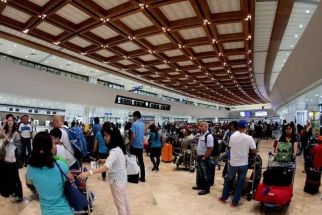ADB airs concern over pace of bank reforms in RP
March 21, 2001 | 12:00am
The Asian Development Bank (ADB) has expressed concern over the pace at which Congress has been working on legislative measures that address banking sector reforms, including money laundering.
In an interview, ADB country director for the Philippines Dr. Gunther Hecker said the bill addressing money laundering should be passed into law if the Philippines expects to regain the confidence of the international business community.
"Reforms are being pushed (in the financial sector) and those signals are good. The Philippines has a headstart over its Asian neighbors in terms of initiating banking reforms. But the country should not relax," Hecker said.
He said the international community expects the money laundering bill to be passed into law, along with measures aimed at strengthening the supervisory functions of the Bangko Sentral ng Pilipinas (BSP) as well as recognition of its independence from political pressures is another area of concern.
"Those things have to be done," the ADB director stressed.
The BSP has taken the initiative to implement measures to combat money laundering, but its authority is limited by the Bank Secrecy Law.
The Bankers Association of the Philippines (BAP) and the BSP have started talks to implement measures that could be undertaken while the bill on money laundering is pending in Congress.
Both the BAP and BSP are considering adopting the standards set by the US Federal Reserve on the issue of suspicious transactions.
Among the initial recommendations is that any account above P50 million should be subject to scrutiny by bank authorities. The bank should also inform the BSP of the said account.
The BAP believes the amount can still be reduced. "The amount is still big and it can still be broken up. If we are to remove the money laundering tag placed by the international community, we have to be strict about huge transactions."
The Philippines last year was included in a list of "uncooperative" countries in the fighting against money laundering. The list was drawn up by the Paris-based Financial Advisory Task Force (FATF) which was set up by the Group of Seven (G-7) composed of seven of the world’s most industrialized nations.
The country is the only Asian nation in the list which includes the so-called tax havens in the Caribbean and the Pacific Ocean.
In an interview, ADB country director for the Philippines Dr. Gunther Hecker said the bill addressing money laundering should be passed into law if the Philippines expects to regain the confidence of the international business community.
"Reforms are being pushed (in the financial sector) and those signals are good. The Philippines has a headstart over its Asian neighbors in terms of initiating banking reforms. But the country should not relax," Hecker said.
He said the international community expects the money laundering bill to be passed into law, along with measures aimed at strengthening the supervisory functions of the Bangko Sentral ng Pilipinas (BSP) as well as recognition of its independence from political pressures is another area of concern.
"Those things have to be done," the ADB director stressed.
The BSP has taken the initiative to implement measures to combat money laundering, but its authority is limited by the Bank Secrecy Law.
The Bankers Association of the Philippines (BAP) and the BSP have started talks to implement measures that could be undertaken while the bill on money laundering is pending in Congress.
Both the BAP and BSP are considering adopting the standards set by the US Federal Reserve on the issue of suspicious transactions.
Among the initial recommendations is that any account above P50 million should be subject to scrutiny by bank authorities. The bank should also inform the BSP of the said account.
The BAP believes the amount can still be reduced. "The amount is still big and it can still be broken up. If we are to remove the money laundering tag placed by the international community, we have to be strict about huge transactions."
The Philippines last year was included in a list of "uncooperative" countries in the fighting against money laundering. The list was drawn up by the Paris-based Financial Advisory Task Force (FATF) which was set up by the Group of Seven (G-7) composed of seven of the world’s most industrialized nations.
The country is the only Asian nation in the list which includes the so-called tax havens in the Caribbean and the Pacific Ocean.
BrandSpace Articles
<
>
- Latest
- Trending
Trending
Latest
Trending
Latest
1 minute ago
Recommended





























